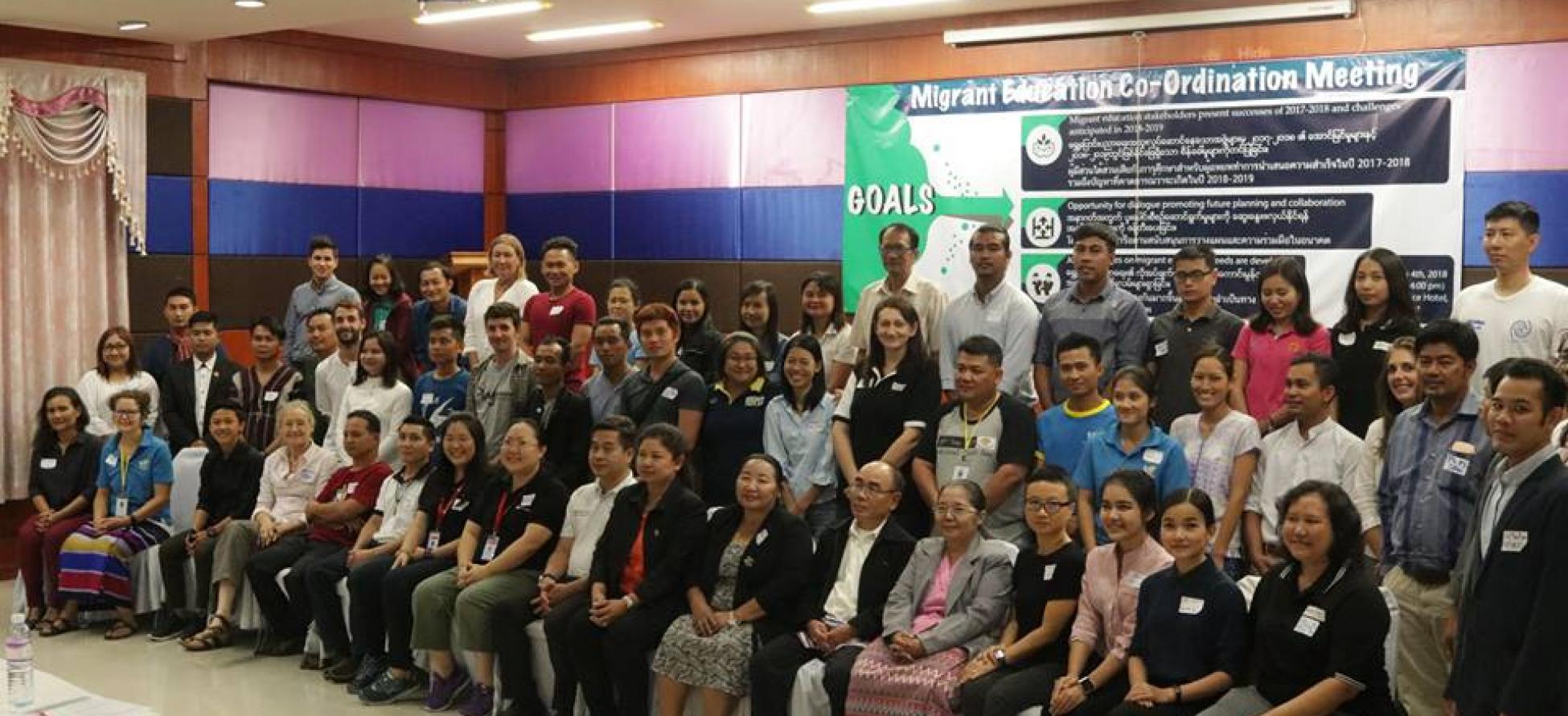
Migrant Learning Centres (MLCs) provide access to recognized education and keep some of the most vulnerable children on the boarder safe. In the school year 2017-2018, 12,848 Burmese children were enrolled in 70 Migrant Learning Centres in Thailand.
On 4 May 2018, a Migrant Education Coordination Meeting was organised for migrant education stakeholders to discuss the challenges anticipated in 2018-2019. MECC, BMWEC, HwF, BMTA, EQAB, MEII, SCI, RTP, CDF, UNESCO Bangkok, as well as other local partners were invited to the event. Such opportunity for dialogue was deemed to promote future planning and collaboration. As a result of the dialogue between the panel of local stakeholders, joint messages on migrant education needs were developed.
The four key messages for the provision of education to migrant children in the coming years are the following:
1. Migrant Learning Centres are the best placed and locally-supported institutions that protect vulnerable migrant children at risk of being out of school. MLCs provide a safe and secure environment for learning in a language children understand. They encourage community members to enroll their children in school and they often actively seek out children who are not in school.
Support is needed for the upcoming academic year to ensure these centers remain an option for at-risk children in need.
2. Scaled implementation of the policy on education on non-Thai citizens is needed for migrant children to have access to Thai government schools. The updated Education For All (EFA) policy enables more migrant children to access education provided by the Thai Ministry of Education.
Support is needed to raise the awareness of migrant families on the updated enrolment policies for migrant students to enter Thai government schools.
3. Migrant Learning Centres act as a safety net to mobilize community support for families who face difficulties financially contributing to their children’s education. MLCs reduce some of the barriers to accessing education that are faced by the most vulnerable migrant community members, many of which are on the move. Through Parent Teacher Associations, MLCs engage migrant parents in their children’s education.
Support is needed to ensure migrant families understand what options are available for their children.
4. Migrant Learning Centers provide access to recognized education from both the Thailand and Myanmar Ministries of Education. To contribute to the achievement of UN Sustainable Development Goal 4 to “Ensure inclusive and equitable quality education and promote lifelong learning opportunities for all” all MLCs under HWF, BMTA and BMWEC are using government-recognized curriculum, including flexible pathways such as Myanmar Non-Formal Primary Education and Thai Non-Formal Education (Goh Soh Noh). All children have the right to a quality education.
Support is needed to scale/upgrade these and other educational options for migrant children.



